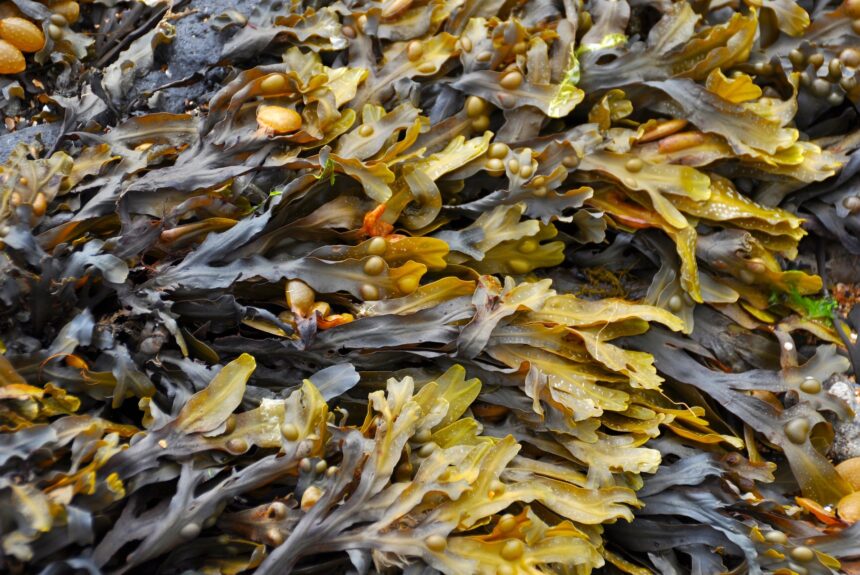For the budget-conscious, the worst part about ordering fast food may be the cost, but environmentalists likely have a different answer: the packaging. Food ordered to go, whether in the form of delivery or carry-out, comes with many layers of packaging, usually non-recyclable and chemical-filled. Now, however, an unlikely ingredient may start to change packaging as we know it. Seaweed is poised to become the next environmentally friendly way to package food.
>>>READ: Can Single-Use Plastics Be Replaced By Seaweed?
Researchers at Flinders University in Australia partnered with German biomaterials developer ‘one • five’ with the goal of creating a biopolymer made out of seaweed.
Dr. Zhongfan Jia, one of the lead researchers from the Flinders Institute for Nanoscale Science and Technology, noted that the biopolymer is as recyclable as paper:
“The seaweed extracts have a similar structure to the natural fibres from which paper is made…Our novel specialist treatments boost the grease-resistance feature of the seaweed via simple modifications while not affecting biodegradability nor recyclability of the coated paper.”
This partnership is working to develop seaweed as a biopolymer, taking on the role normal polymers play in fast food packaging. Synthetic polymers are used to keep oil from seeping through fast food packaging. However, these polymers make it nearly impossible to send packaging anywhere but the landfill, and are also filled with harmful chemicals.
>>>READ: Mission: Iconic Reefs Sets to Restoring One of the Ocean’s Greatest Ecosystems
“We are able to reduce harmful plastic pollution with this product, and we are also using feedstock that is environmentally regenerative,” explained Claire Gusko, co-founder of one • fıve. “Seaweed cultivation helps to naturally rehabilitate marine environments, reduce greenhouse gases, and mitigate coastal erosion. It’s important for us to use sustainable inputs upstream to ensure our products are environmentally safe, from cradle to grave.”
This seaweed-based biopolymer is developed by first extracting natural polymers from the seaweed. The team then uses a proprietary processing technology to create biopolymer sheets that can be either cut to size or used as a coating. The team is currently working on developing a way to upscale the production of this seaweed biopolymer.
While this is certainly an innovative product, using seaweed to create more sustainable packaging is not a new venture. There are many startups out there working across industries to create seaweed-based packaging in all its different forms. From disposable grocery bags to condiment packages, environmental innovators are imagining seaweed as a solution across the spectrum of the food industry.
But delivering such products on a large scale is the key element here, and it is something that Flinders University and one • fıve are actively working toward. Seaweed innovation has been on the rise for a while, but developing and manufacturing a product that revolutionizes packaging is a whole different ball game. This seaweed-based biopolymer might just do the trick.
Kelvey Vander Hart is a native Iowan, a member of the American Conservation Coalition, and a communications specialist at Reason Foundation.
The views and opinions expressed are those of the author’s and do not necessarily reflect the official policy or position of C3.
